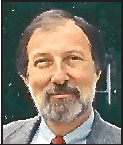It is Saturday, and Susan and I are sitting in our home on 9th Street in Port Royal. This afternoon we’ve opened a bottle of Apothic Red and are sharing it with our friends, Ben Peeples and his wife, Joanne.
For the past half hour we’ve been talking body armor — Ben takes transcontinental motorcycle rides and is keen on protecting his head, knees and hips if and when he falls. This would not be the first time he has worn armor. The first time was when he flew combat missions above Vietnam.
Ben and I were “knobs” at The Citadel in 1963. After graduation he went to Vietnam, was shot down twice, and came home with a Purple Heart and several grains of Chinese ordinance in his knee.
The Vietnam War defined our generation. You either fought like Ben; or demonstrated; or fell somewhere in between. This war is going to be part of our generational narrative whether we like it or not.
Vietnam was fought with the same helmets; the same 81 mm mortars; and the same 155 mm howitzers used in 1945. Yes, there were Huey gunships, but the war had been set in motion by the French and their determination to hang onto their Asian colony after World War II.
In 1967, Ben and I graduated from The Citadel and were expected to do our service in the same way our fathers had done their duty in 1942. By 1967, several graduates had been killed in action and there was the belief that the Chinese and Russian governments were involved. The presence of Soviet ships in Hanoi Harbor and the ubiquitous AK-47 seemed to be adequate proof.
But neither Russia or China wanted to take us on in an open and obvious way that might morph into nuclear war. So there was an understanding that we and they would use conventional, World War II explosives. We were not going to risk Moscow, Minneapolis or Shanghai in this struggle. The Vietnamese, Laotians and Cambodians were not that important.
At The Citadel, there was the notion that World War II veterans like John Kennedy, Dean Rusk and Robert McNamara knew more about geopolitical matters than the average cadet majoring in, say, political science. It was also assumed that Maxwell Taylor, Creighton Abrams and William Westmoreland knew more about tactics and troop strength than your average history major. There was the belief that these oldsters were telling us the truth.
Ernest Hemingway wrote, “All things truly wicked start from innocence.”
In the case of Vietnam, we started off believing that Communism was a bad way to govern and keeping that pathogen contained was a good thing. We thought that keeping Laos, Cambodia and Vietnam free of foreign troops — Chinese communist troops in particular — was a noble purpose. In 1963 we didn’t covet anybody’s oil, or want rubber plantations like the Japanese wanted in 1941. All we wanted were free elections, representative government, and a market-driven economy that allowed one to accumulate wealth.
I must admit that I didn’t go to Vietnam. Rather I went to law school in Washington, D.C., and while in Washington was witness to the demonstrations against the war. Madison Hall at George Washington served as a kind of youth hostel for the students who were bused in from Boston.
I talked to these young people camped outside my door. These kids were not giving Lyndon Johnson or McGeorge Bundy the benefit of the doubt. Vietnam was immoral — period, end of sentence, full stop.
Now that unhappy reel is being re-run in Afghanistan. Once again we see an army evaporate; civil order collapse; and a chaotic, C-17 enabled evacuation. The drama comes complete with self-righteous commentary — in the manner of a Greek chorus — “We told you so.”
Never mind 10 years of (reasonably) representative government. Never mind the dignity and respect given to Afghanistan’s women. It was, we are assured a complete waste of lives.
All of which begs the questions, “Will our leaders ever again have the guts to go into a place like Afghanistan to make life better? Will we, one ponders, ever try to stop a Rwanda-style genocide? Or will it take airborne terrorists driving passenger airplanes into the World Trade Center before we commit troops?”
Right now, we are, clearly, out of the business of exporting free and fair elections; or projecting free speech and the notion of gender equality in faraway places with strange sounding names.
Scott Graber is a lawyer, novelist, veteran columnist and longtime resident of Port Royal. He can be reached at cscottgraber@gmail.com.






